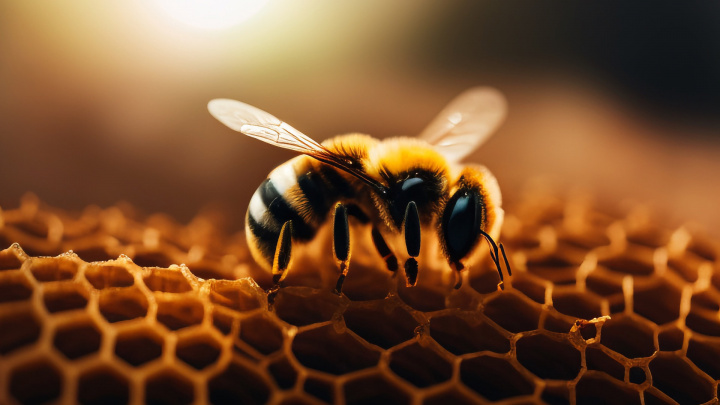Conscious Insects? Exploring Subjective Experience in the Smallest Minds
The question of insect consciousness is a fascinating and increasingly researched field that could fundamentally change how we view these creatures and even open new perspectives for artificial intelligence development. While scientists and philosophers hold differing views on the possibility of subjective experience in beings previously considered simple automatons, the latest research provides growing evidence that insects might experience some basic form of consciousness – even if it differs significantly from human consciousness.

Researchers have found that insects, despite their surprisingly small brains, exhibit complex behaviors that go beyond simple reflexes and may suggest conscious experiences. For instance, they not only possess advanced navigational skills (like the famous bee dance or ant trail-following) and engage in social interactions, but are also capable of complex learning, such as associative learning (linking colors or scents with rewards). Furthermore, some experiments have demonstrated problem-solving abilities and behavioral flexibility in novel situations. Phenomena like selective attention, where an insect focuses on relevant stimuli, have also been observed.
At the neuroanatomical level, a structure in the insect brain called the "central complex" has become a focus of attention. This area is crucial for integrating various sensory inputs, spatial orientation, and action planning. Because this structure functions as a kind of central processing unit, some researchers suggest it could provide the neural basis for a unified, subjective perspective, potentially hosting phenomenal consciousness (the basic capacity for sensation).
Behavioral evidence further strengthens this picture. The aforementioned bee dance is not just information transfer but a learned and flexibly applied form of communication. Ants can optimize their routes and find alternatives. Experiments have shown that insects can modify their behavior based on past experiences and environmental changes, suggesting they are not merely responding with pre-programmed actions but that internal states (e.g., hunger, attention) also influence their decisions.
The ethical implications of potential insect consciousness are significant. If we accept that they might be capable of subjective experiences, especially negative ones (like pain or stress), it could influence how we treat them. This could affect agricultural pest control practices, methods used in scientific research (e.g., is anesthesia needed for certain procedures?), and even cast conservation efforts in a new light. The debate here often revolves around the definition and levels of consciousness: is basic sentience sufficient for moral consideration?
The idea that consciousness is not limited to mammals and birds with complex brains but might be a more widespread phenomenon in the animal kingdom is gaining traction. This perspective is supported by the theory that vast brain size isn't necessarily required for basic conscious processes; the right organization of neural networks, even in simpler structures, might allow subjective experience to emerge. However, definitively proving insect consciousness remains a huge challenge, primarily due to the subjective nature of consciousness itself (the so-called "hard problem of consciousness") and because we cannot directly access the experiences of another organism.
Advances in neuroscience, however, are providing new tools. Techniques like calcium imaging (which allows tracking nerve cell activity in living insects) and advanced electrophysiological recordings enable more detailed study of the neural processes underlying insect behavior. These methods can help uncover the brain mechanisms responsible for perception, learning, and decision-making, thus potentially offering indirect evidence for or against the existence of internal experiences.
Finally, research into insect consciousness also feeds back into the field of artificial intelligence. Understanding how a relatively simple biological system can achieve complex, adaptive behavior and potentially possess subjective experiences could inspire the design of more efficient AI algorithms. It also raises the question: if biological evolution could produce consciousness on such "simple" foundations, at what level of complexity might the possibility of consciousness arise in artificial systems, and what ethical frameworks do we need to address this?





